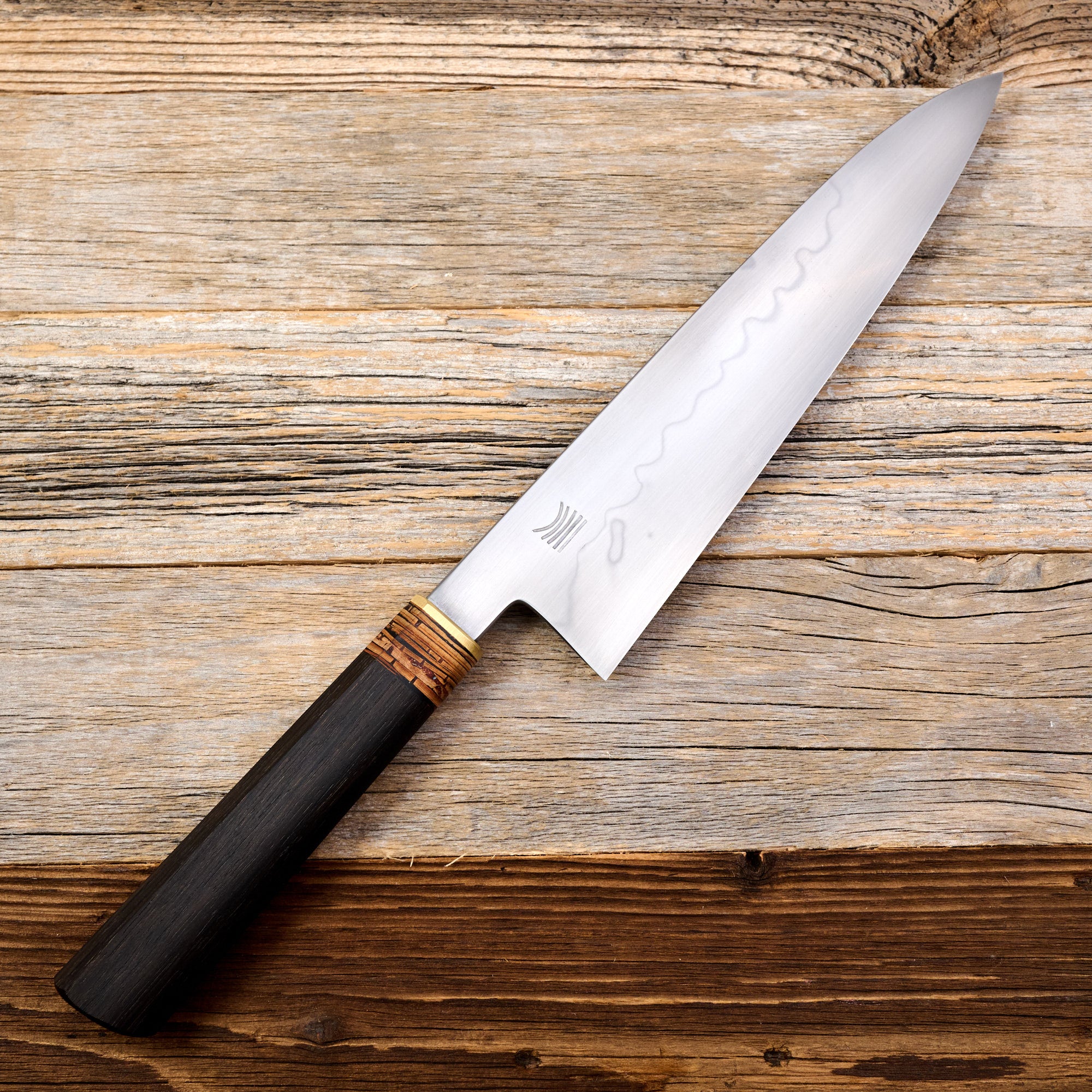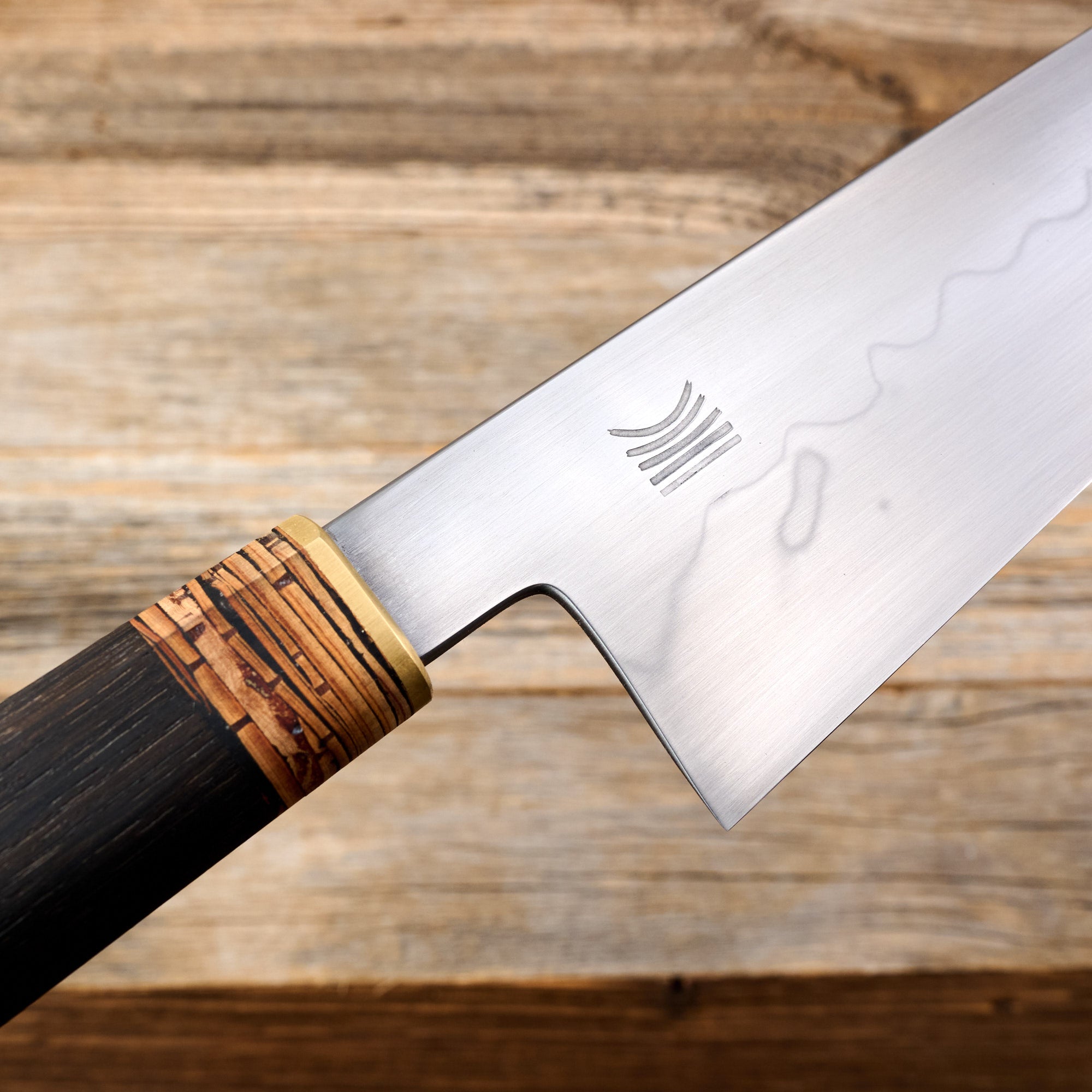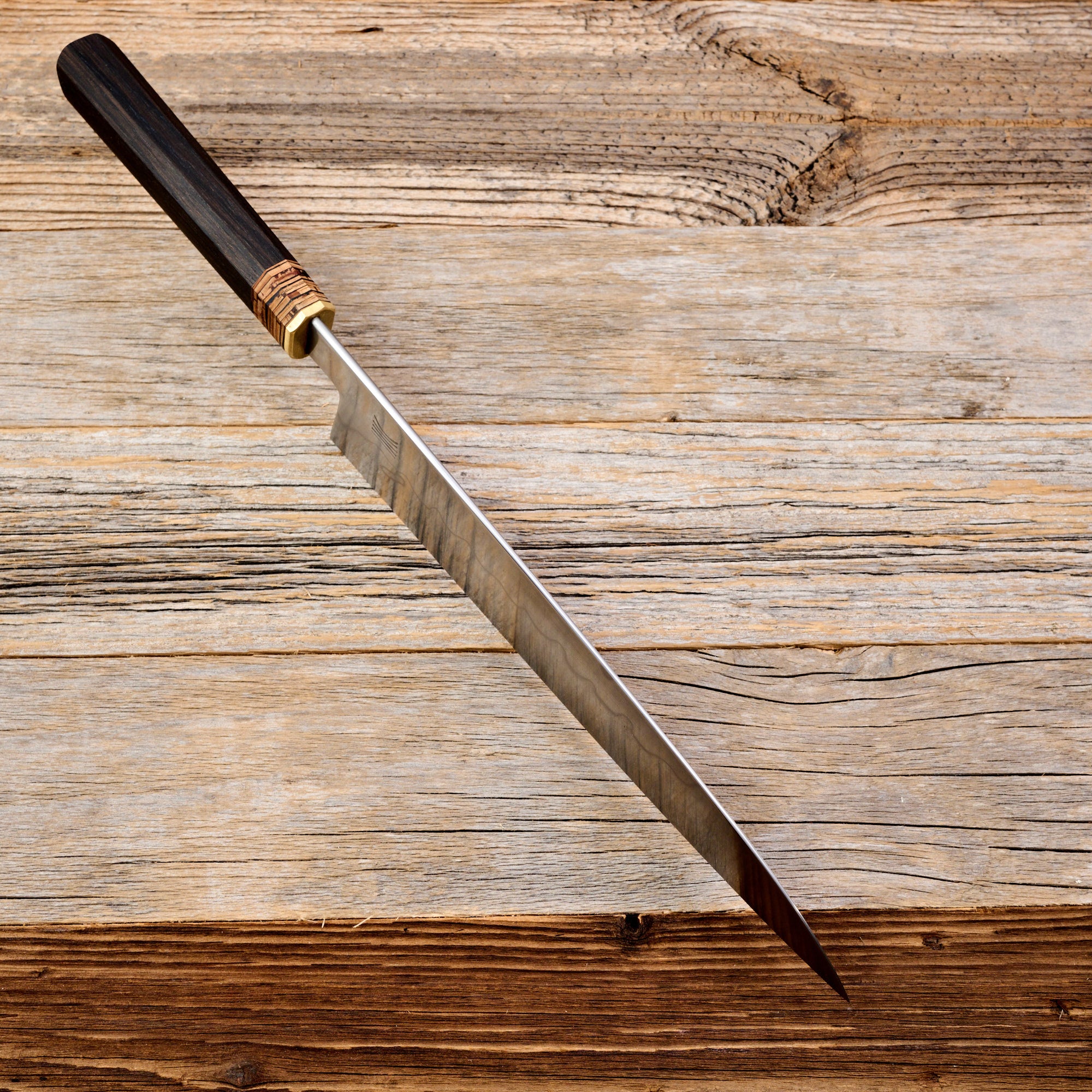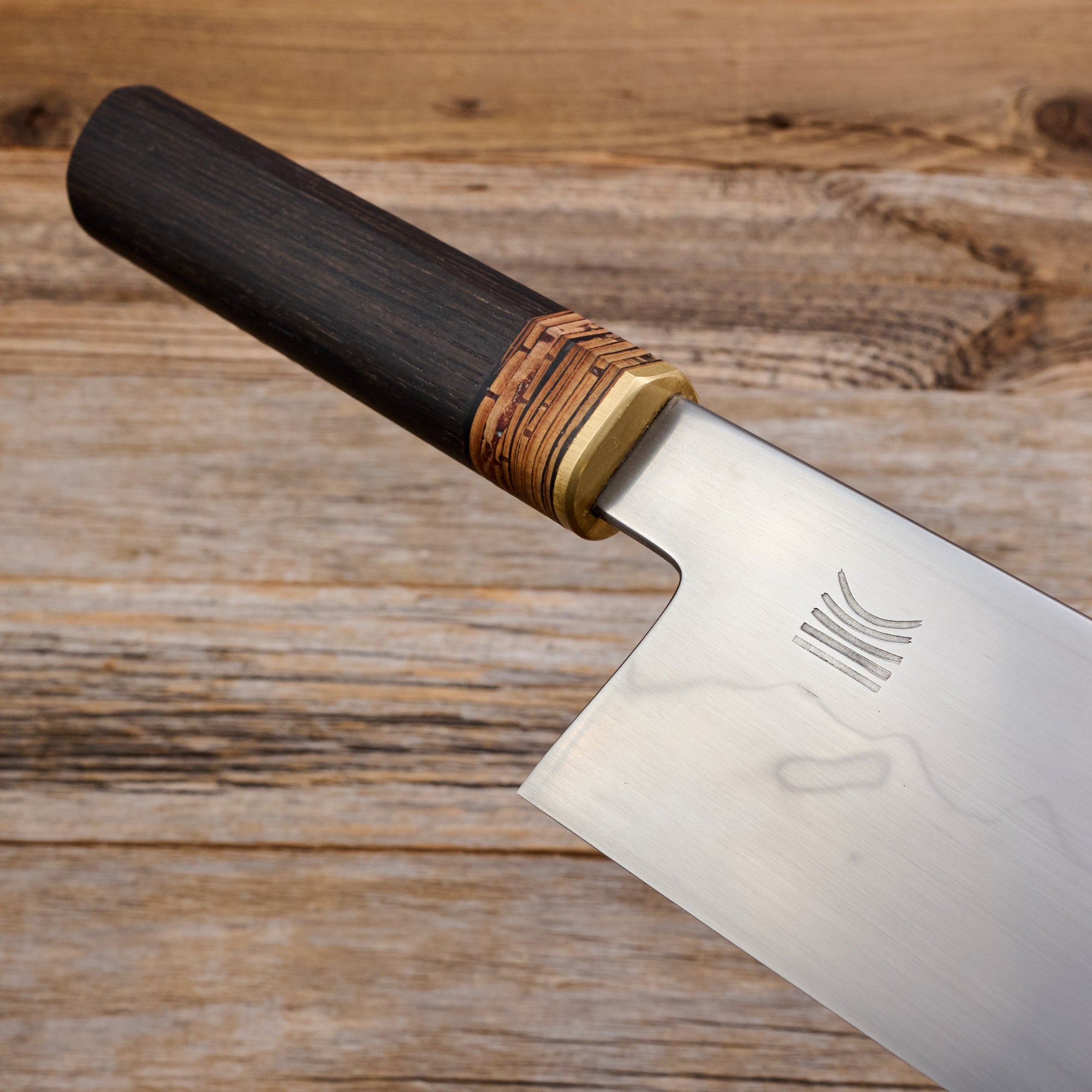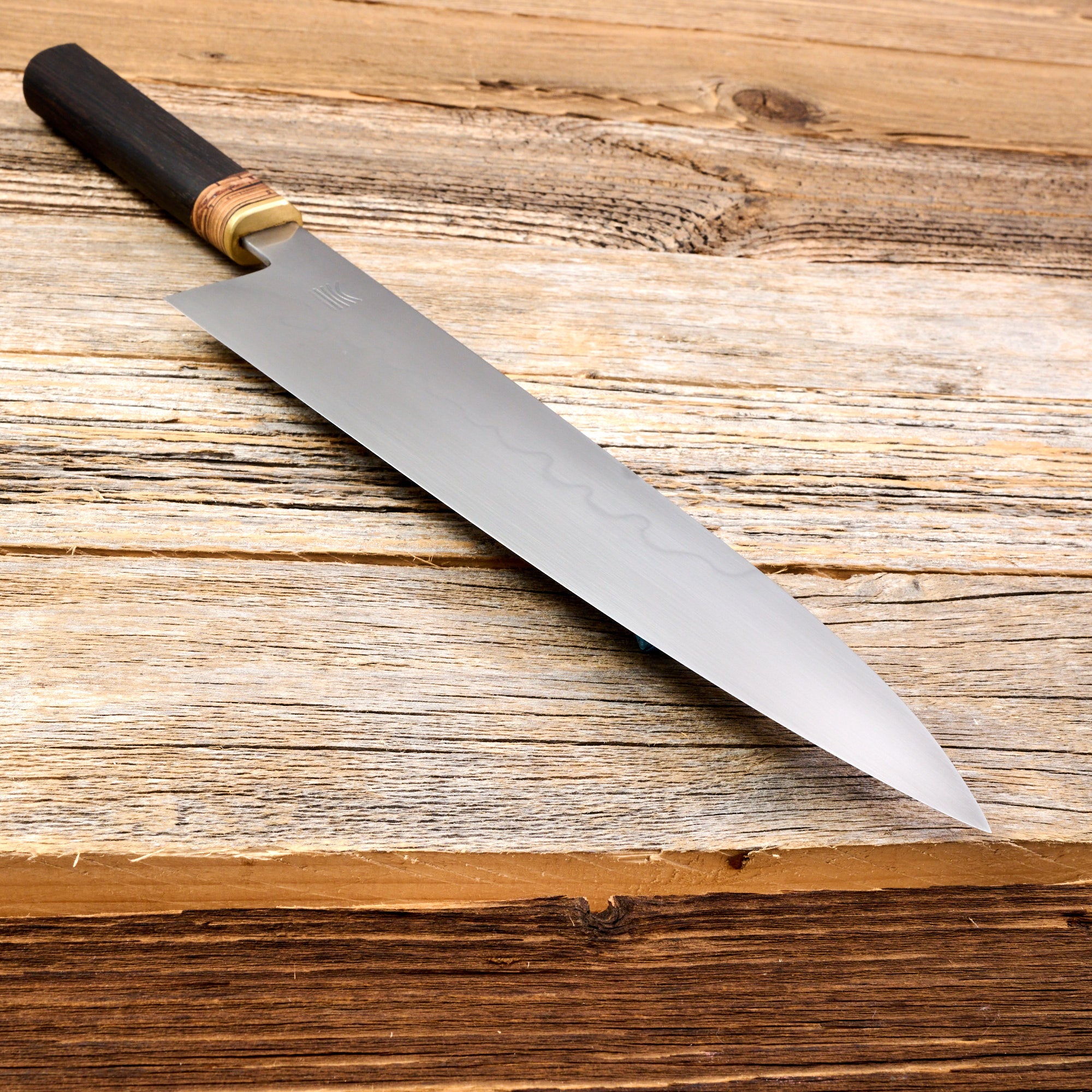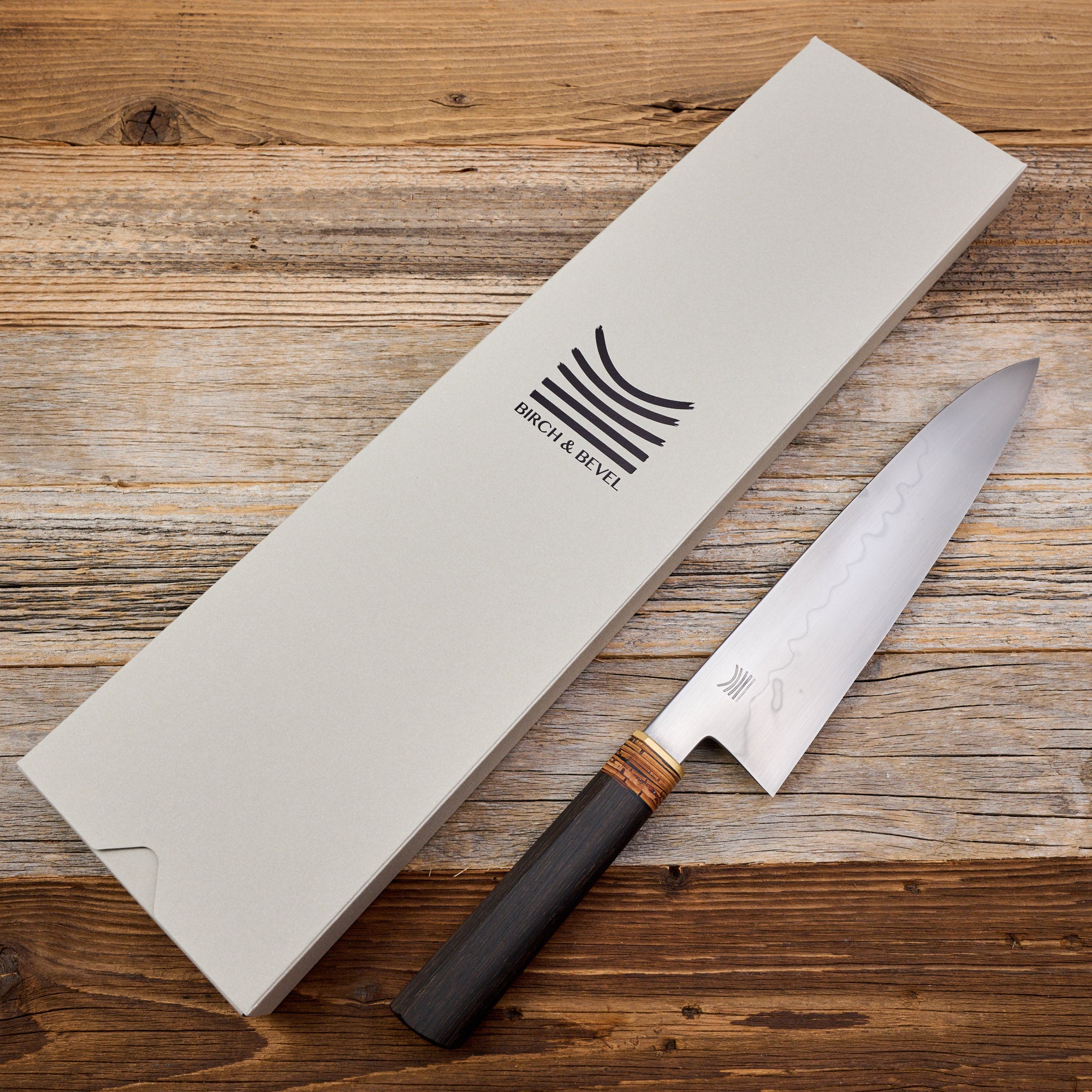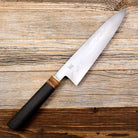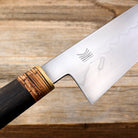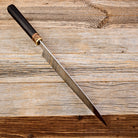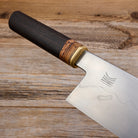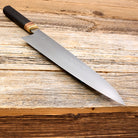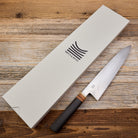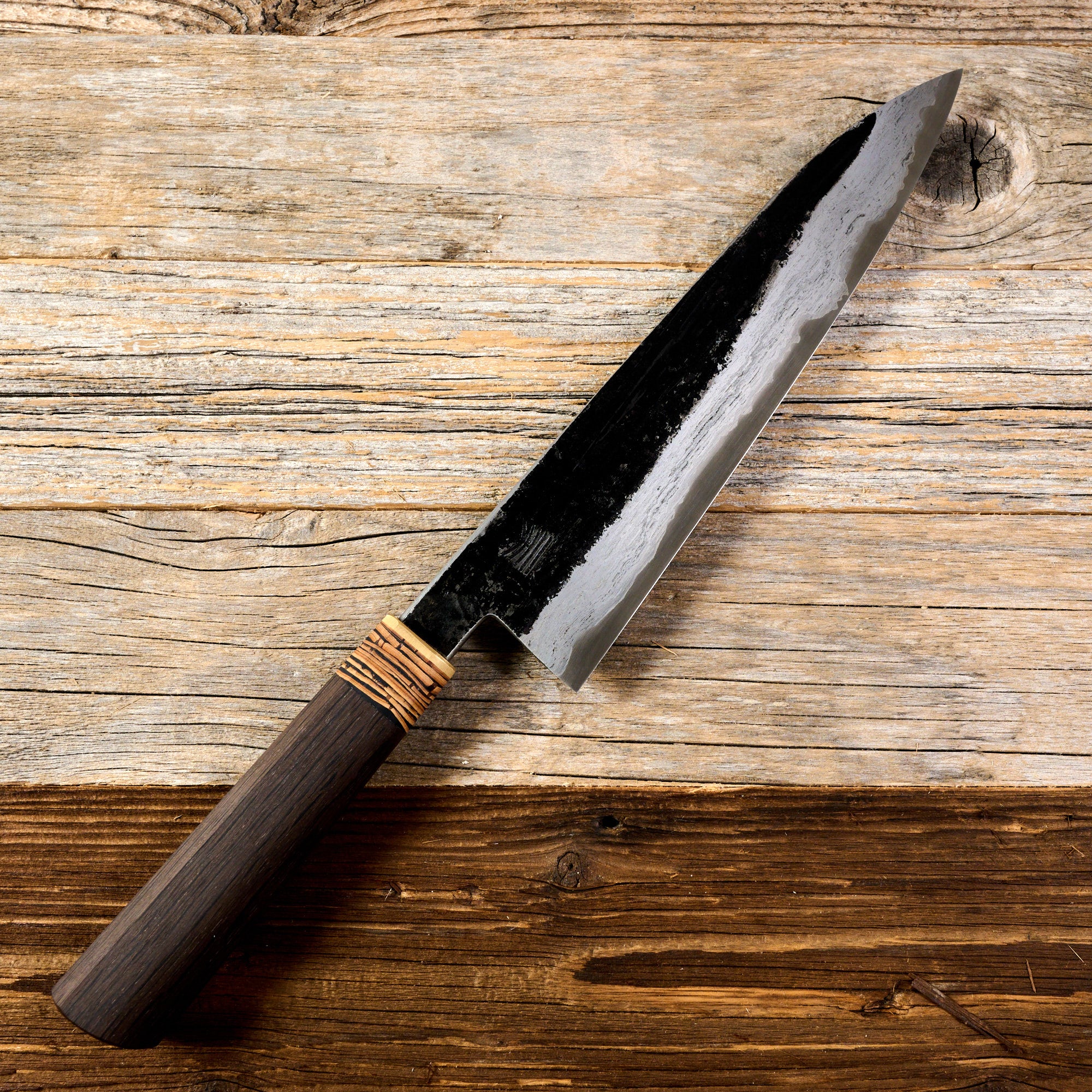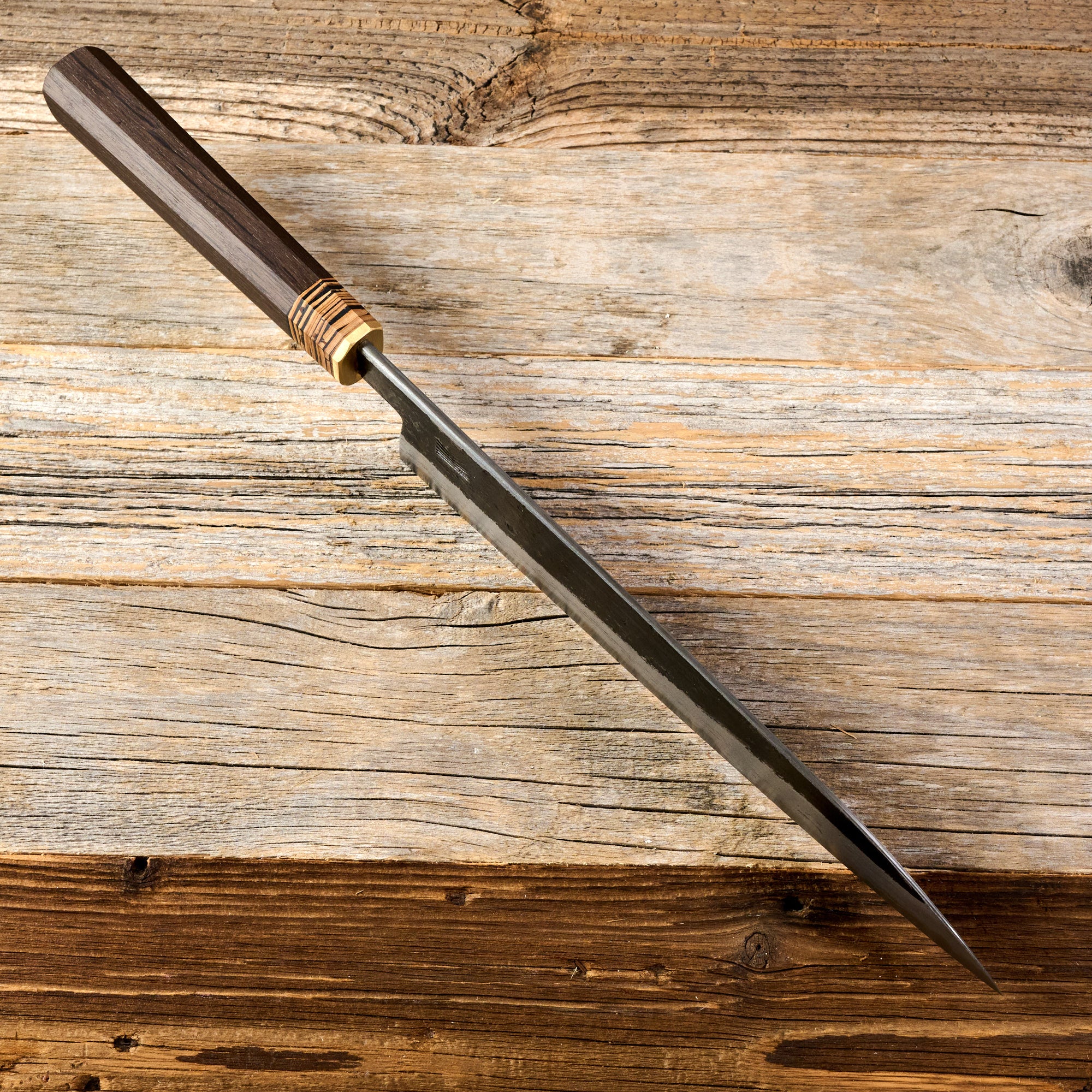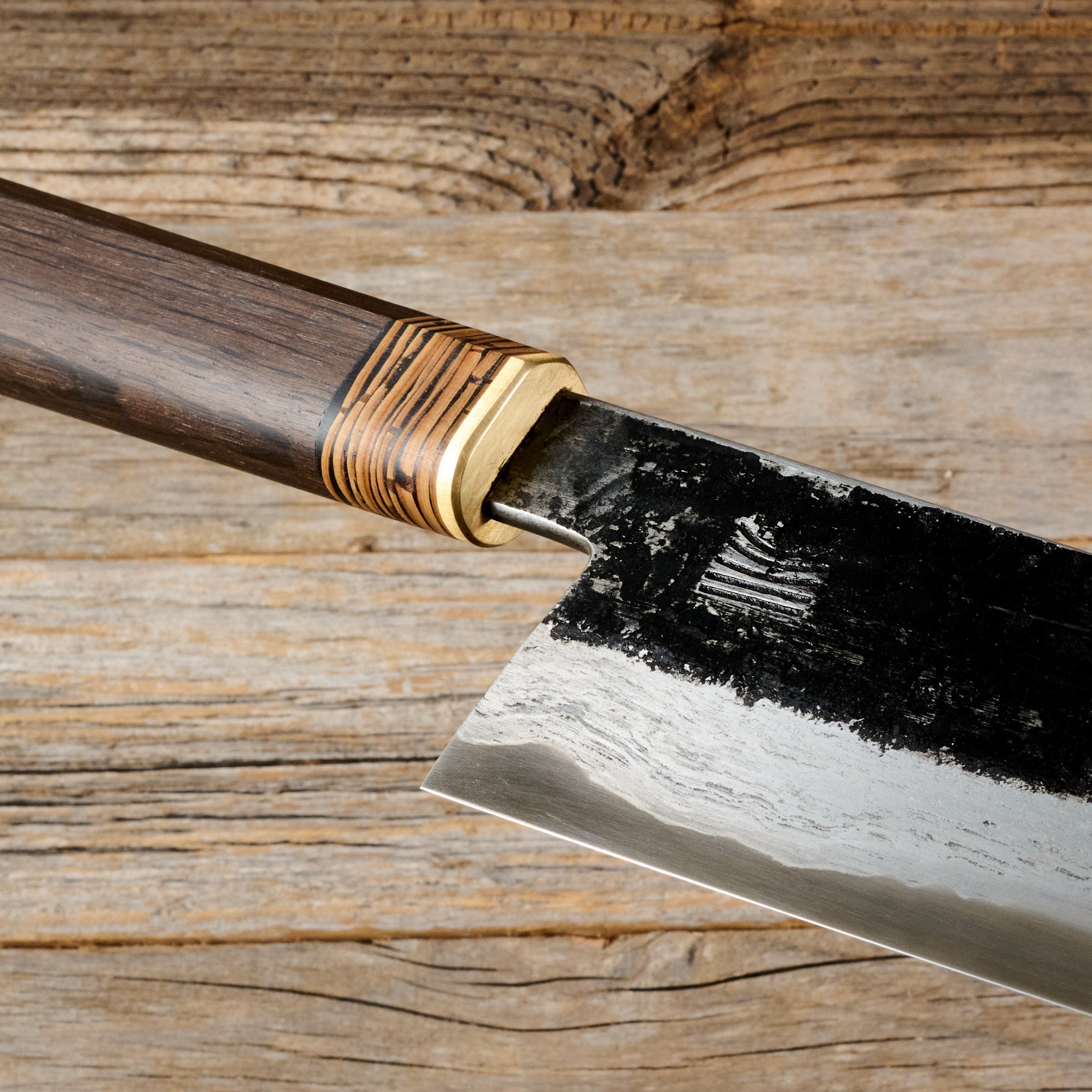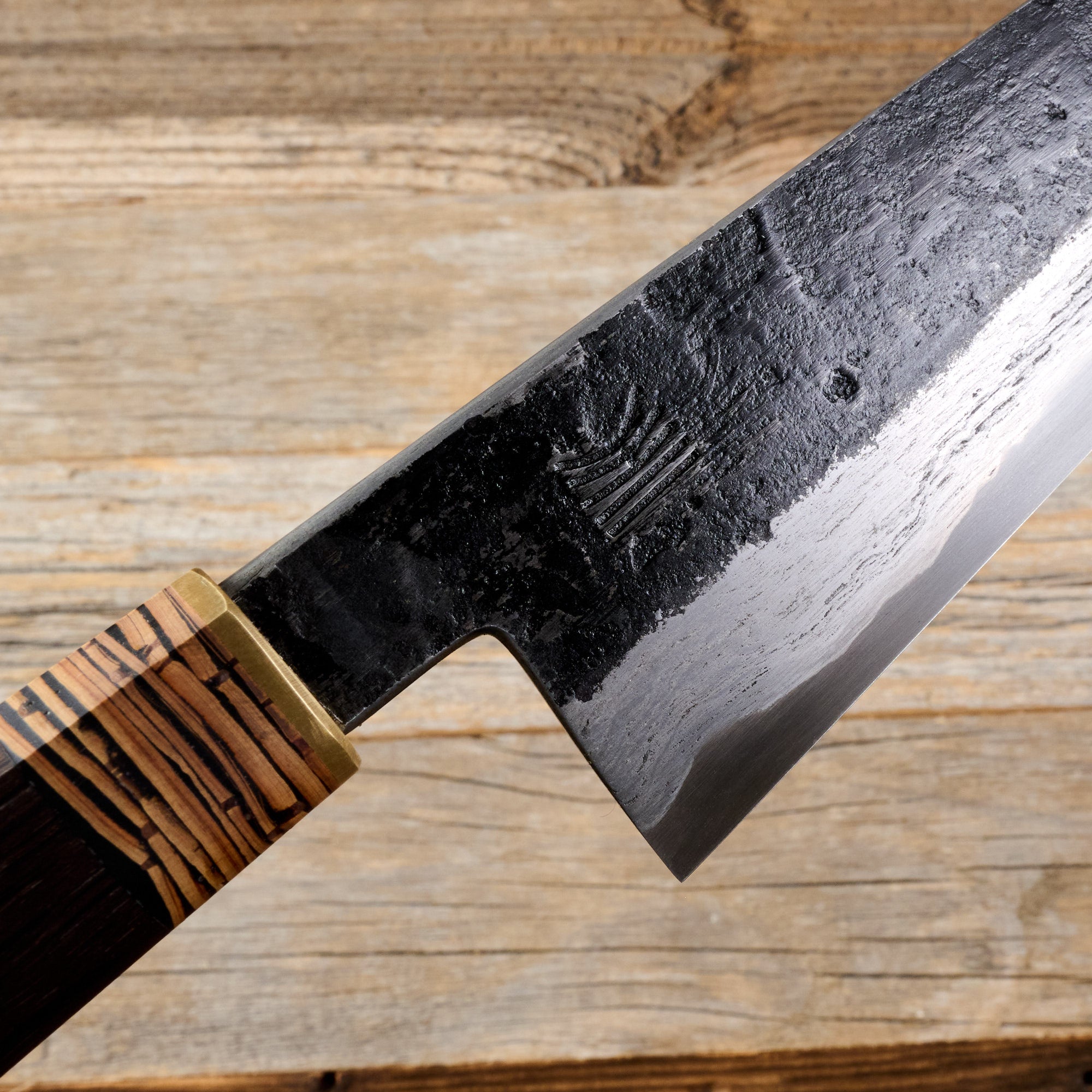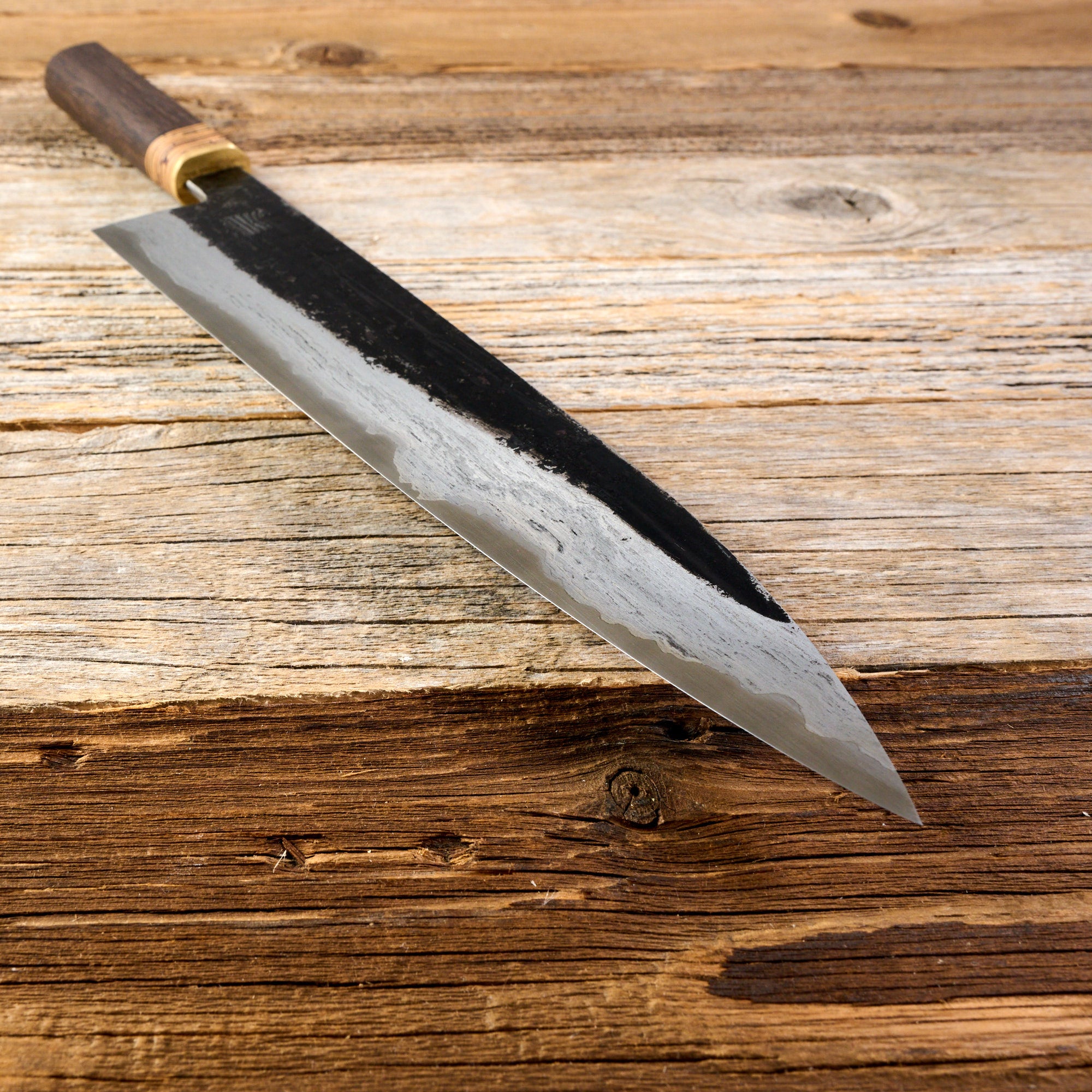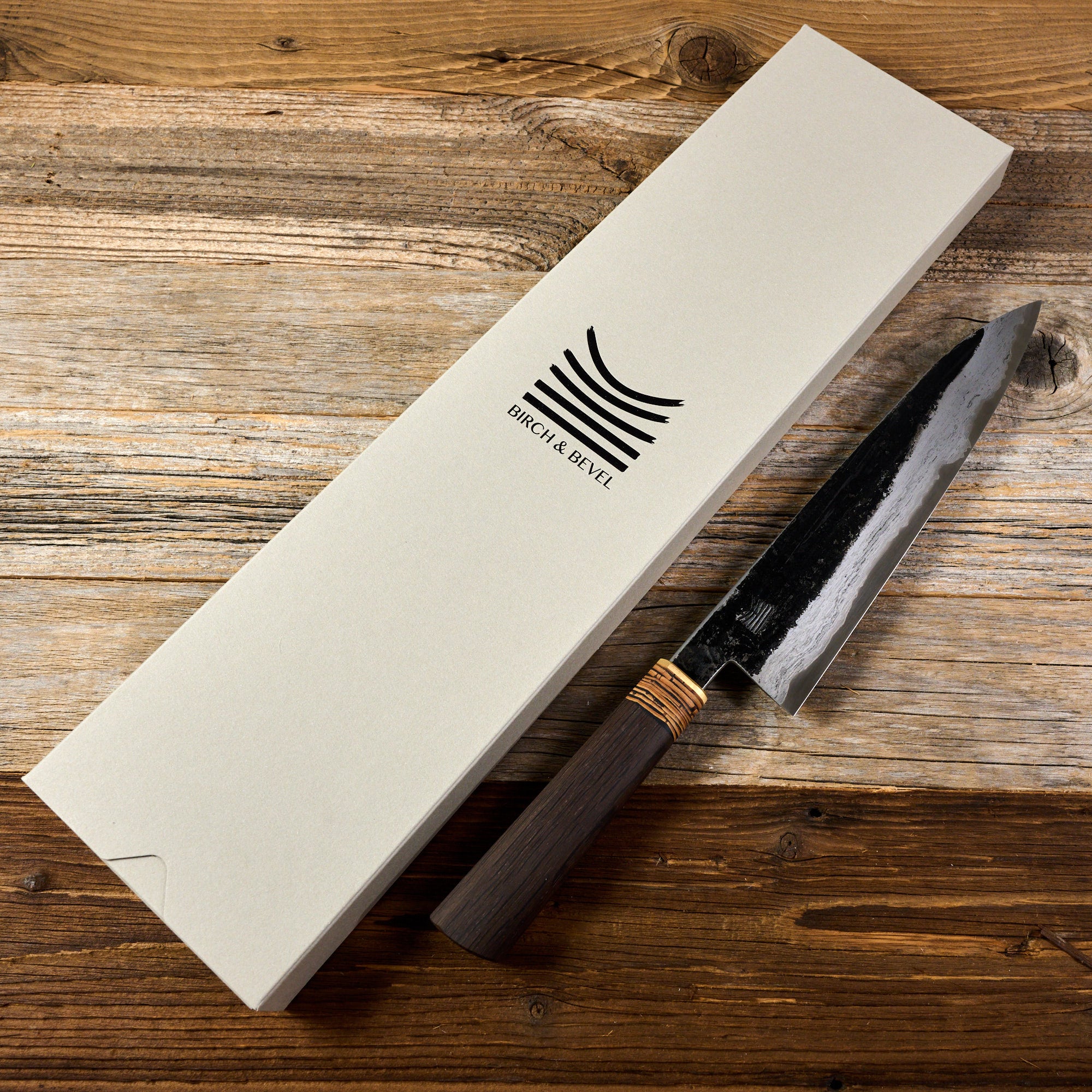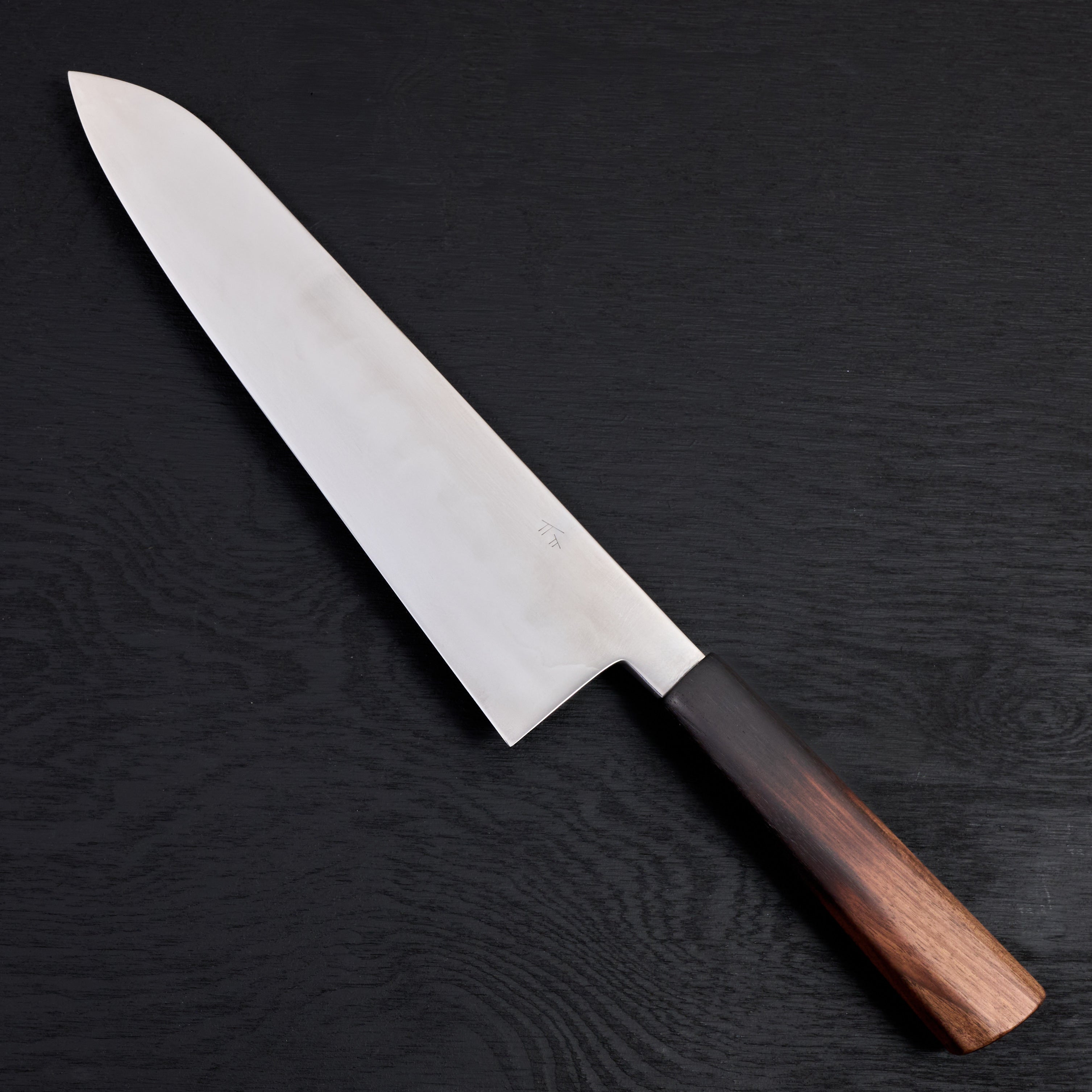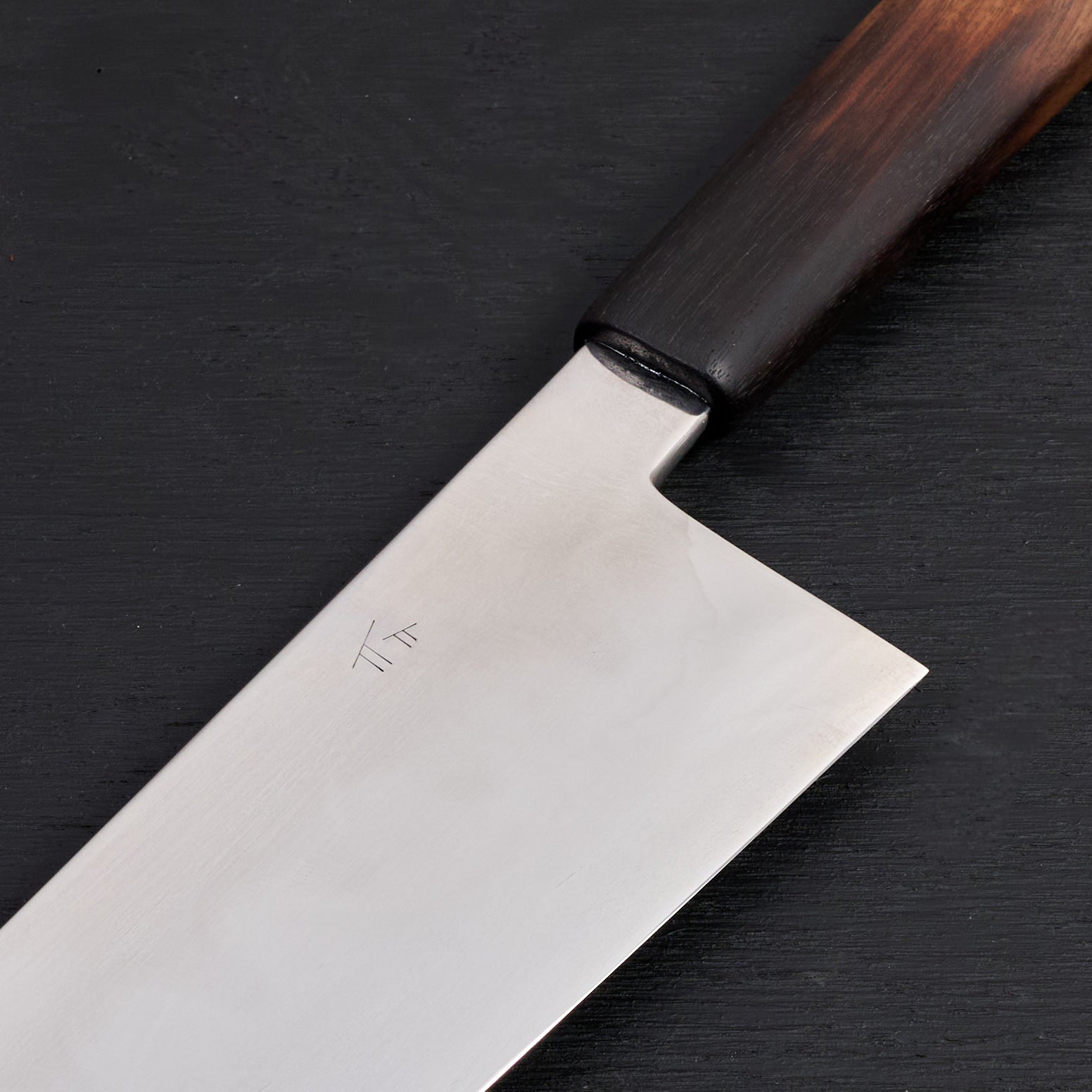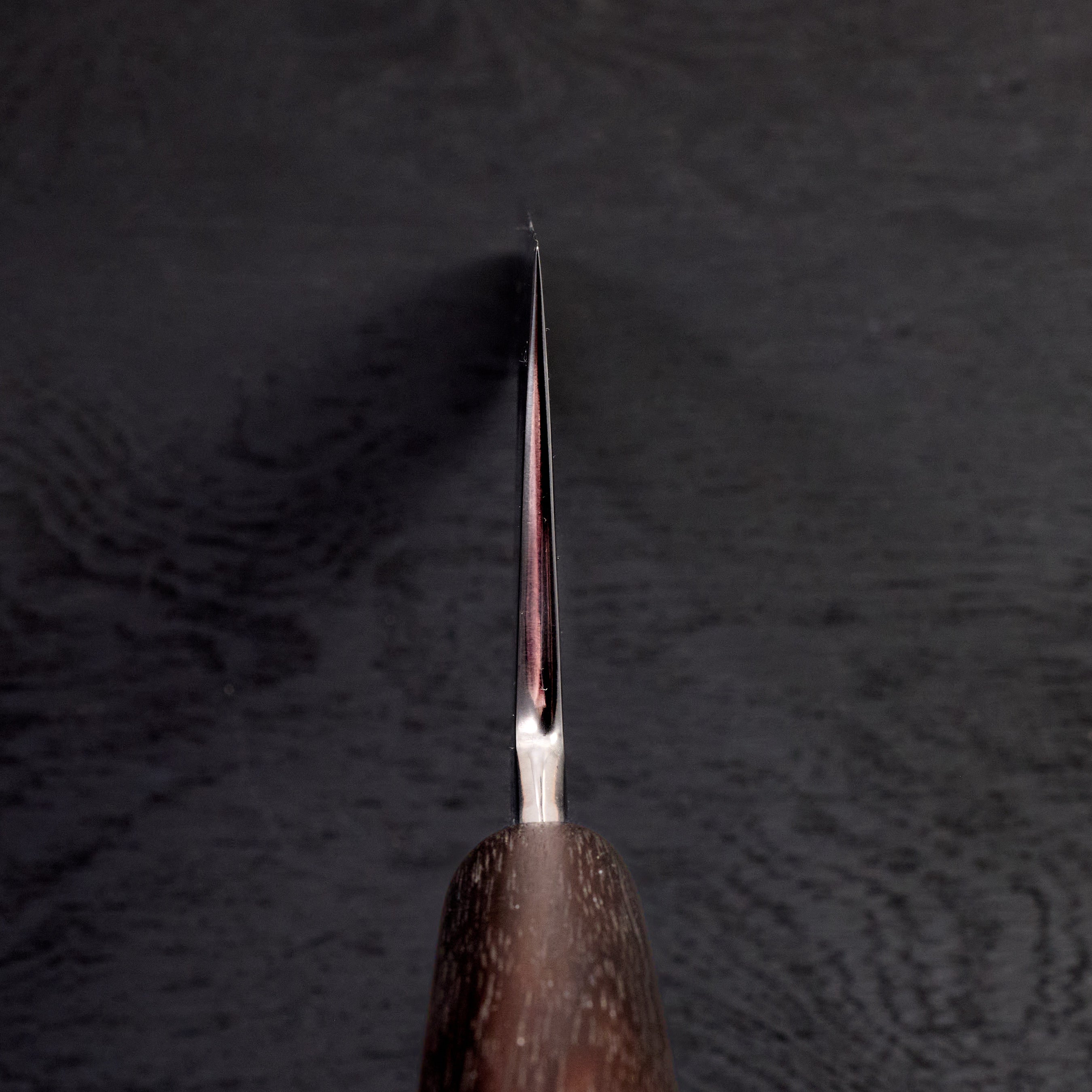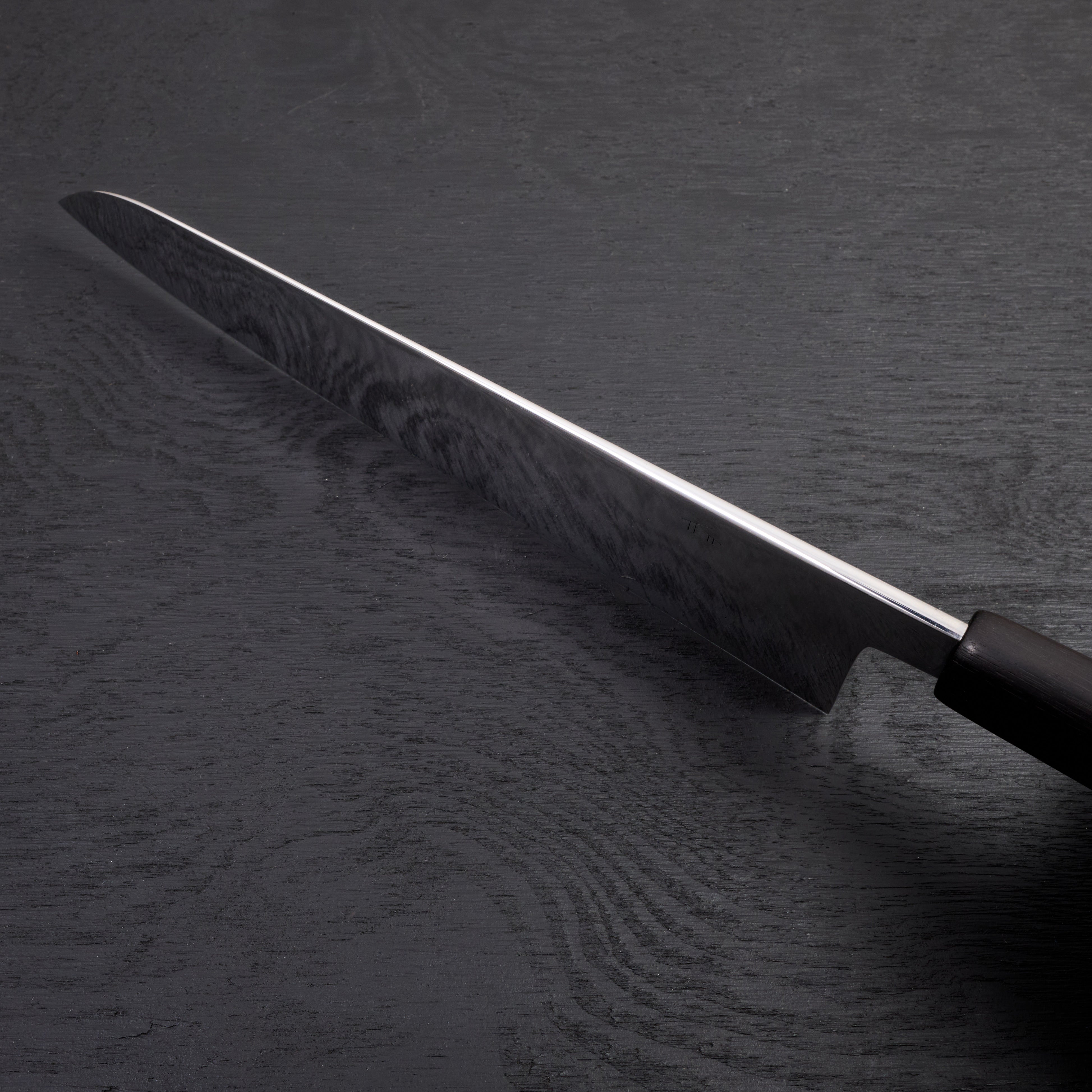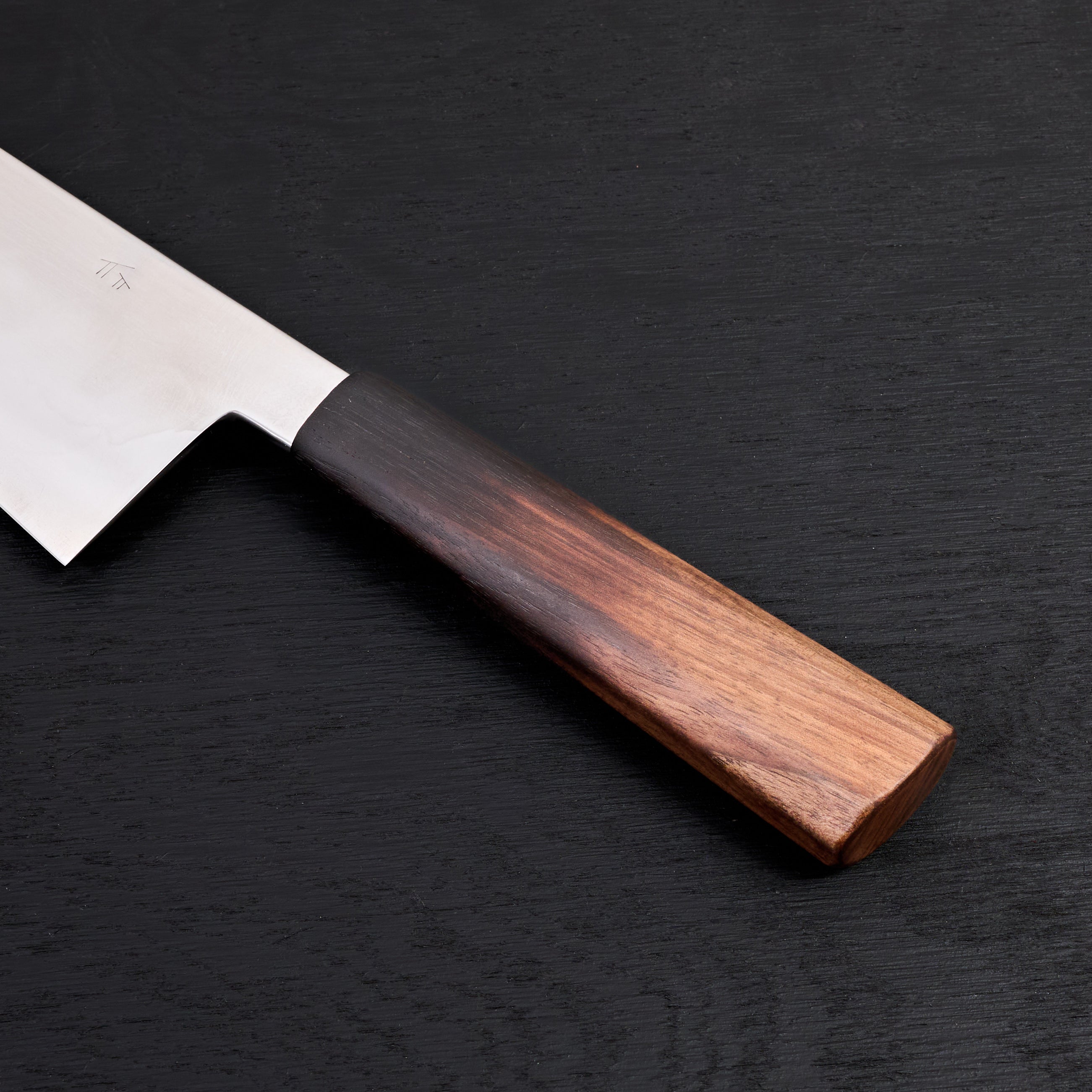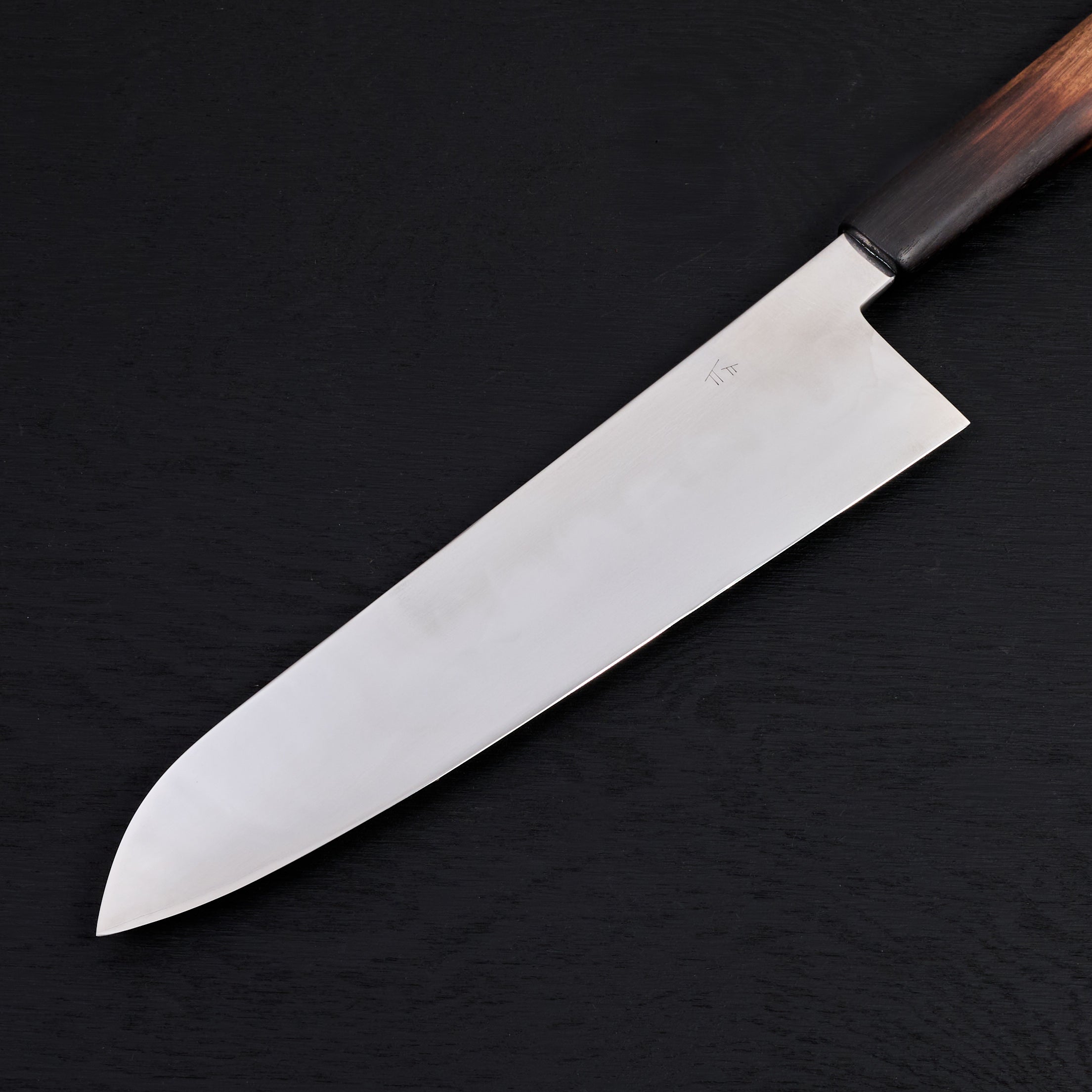Honyaki Gyuto
Couldn't load pickup availability
Honyaki kitchen knives are forged using a technique most similar to that used in the forging of Japanese katana. The technique was developed to improve the strength and sharpness of the swords. Honyaki are forged from high carbon steels using a variable hardening technique that involves the application of a special clay to the spine of the blade before it is quenched. This process leaves the blade with a soft, resilient spine, a hamon (or temper line), and hard, sharp edge.
Honyaki kitchen knives are highly sort after by collectors and enthusiasts due to the exceptional beauty of the hamon and because of the high level of skill required to produce these knives. Even the most talented of blacksmith will have up to 30% of their blades fail. It is for this reason that we are only able to produce the Birch and Bevel Honyaki Gyuto series in the smallest of quantities.
Our Honyaki Gyuto's are forged with a tapered spine and ground Walkschliff, a grinding technique that is done by hand and requires a huge amount of skill. The Walkschliff grind is characterized by the thickest part of the blade being situated bellow the spine. So, the spine is thinner than the overall blade. This oval shape provides a high level of stability, improved cutting performance and an extremely thin and finely ground cutting edge.
Product Specification
Blade Type: Gyuto
Overall length:
Edge Length: 230mm | 250mm
Spine Heel: 3.6mm | 3.6mm
Spine Mid: 2.2mm | 2.2mm
Spine Tip (20mm before): 1mm | 1mm
Blade Height: 55mm | 57mm
Weight: 177g | 211g
Cutting Edge Steel: 26C3
Stainless: No
HRC: 64
Blade Construction: Mono Steel
Blade Finish: Satin Polish
Grind: Walkschliff
Handle Construction: Hidden Tang
Handle Materials: Oak, Birchbark, Brass
Handedness: Ambidextrous
Saya, Hand Crafted Storage or Display Included: No
Shipping & Returns
Shipping
We process orders 5 days a week (Monday - Friday) and ship from our shop in Berlin, Germany. We ship with FedEx, UPS and Deutsche Post.
We are happy to offer free international shipping on a variety of orders depending on location and order value. You can check to see where things sit for you here.
Returns
At Modern Cooking we want our customers to be inspired and delighted by the products they purchase through our shop.
However, we understand that you may need to return products occasionally. If you are not entirely happy, you can return your purchase in its original condition within 14 days for a refund. Please email if you wish to return any goods.
In the unlikely event that you receive faulty goods or your order is damaged in transit, please contact us for instructions on how to return the goods as in this case we will meet the cost of return postage, though only if this is arranged through our authorised carriers. Any claim for refund or exchange resulting from faulty goods or goods damaged in transit must be raised within 5 business days.
All Modern Cooking logistics partners provide insurance in case of damage, but the coverage is only valid if we are notified within 5 business days. Please make sure to inspect your order immediately upon receipt to ensure that there is no damage.
Once we have the goods back, we will issue a full refund or send replacements where possible, as you prefer.
Product Care:
Cleaning: Clean by hand with warm water. Avoid wetting the handle when possible.
Sharpening: We advise using whetstones to sharpen your knives and a honing rod or steel to maintain the burr between sharpening sessions.
Reactive Steels: Reactive steels like Aogami Super, Apex Ultra or one of the many premium reactive German and Swedish steels are susceptible to rust if not properly cared for. In this case we advise that you keep the knife dry between uses and when storing the knife for longer periods wiping the knife blade with Tsubaki oil or another food safe oil is a wise choice. This will not stop a patina forming on the blade, but it will stop rust. A patina can be a beautiful personal feature on your knife and helps to stop rust forming. So, dry your knife regularly between uses, store in a dry place and apply some Tsubaki oil from time to time when storing for long periods.
A reference guide to steel types
Handle Care: If you have a knife with a non-stabilised wooden handle, you can apply Tsubaki oil or another food safe oil to your handle from time to time. Food safe wax can be applied to both stabilised and no-stabilised wooden handles. Never apply hot wax or oil as you risk warping or damaging the handle.

